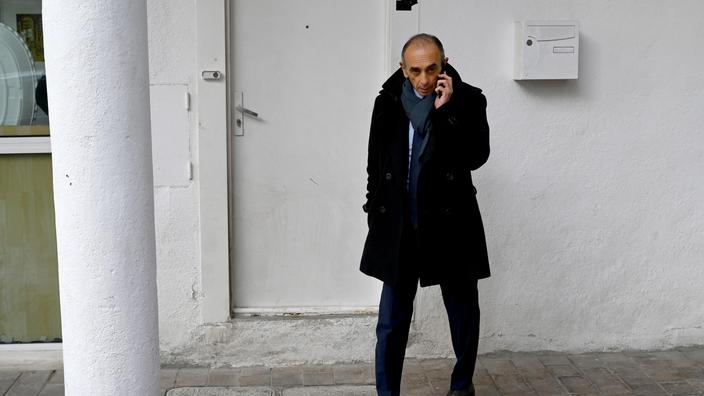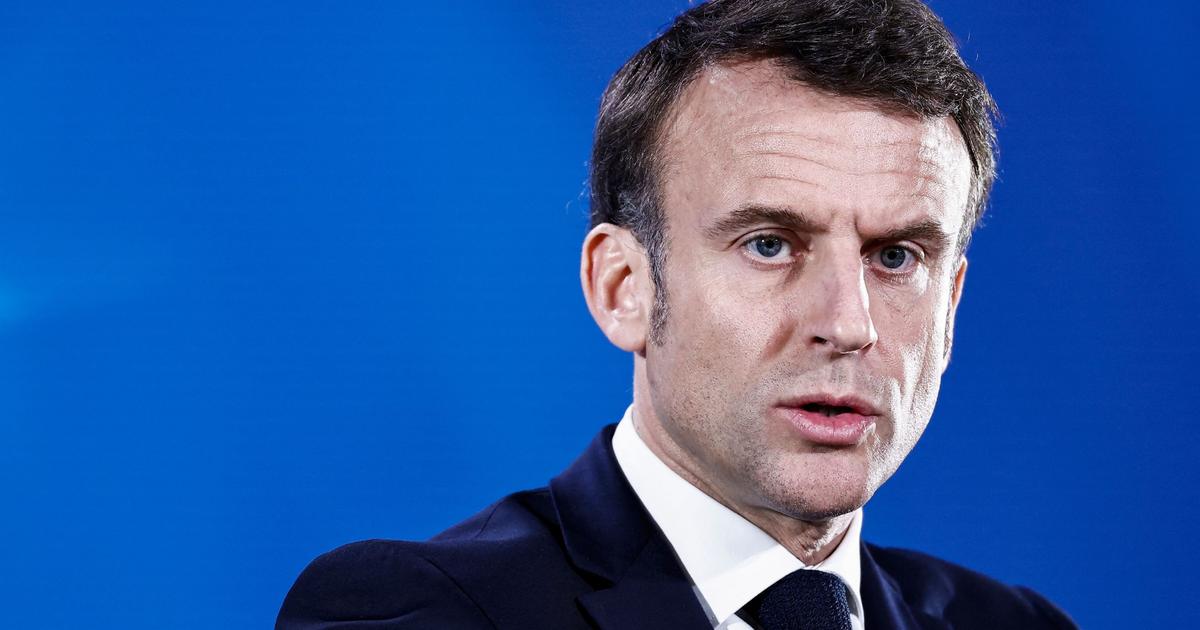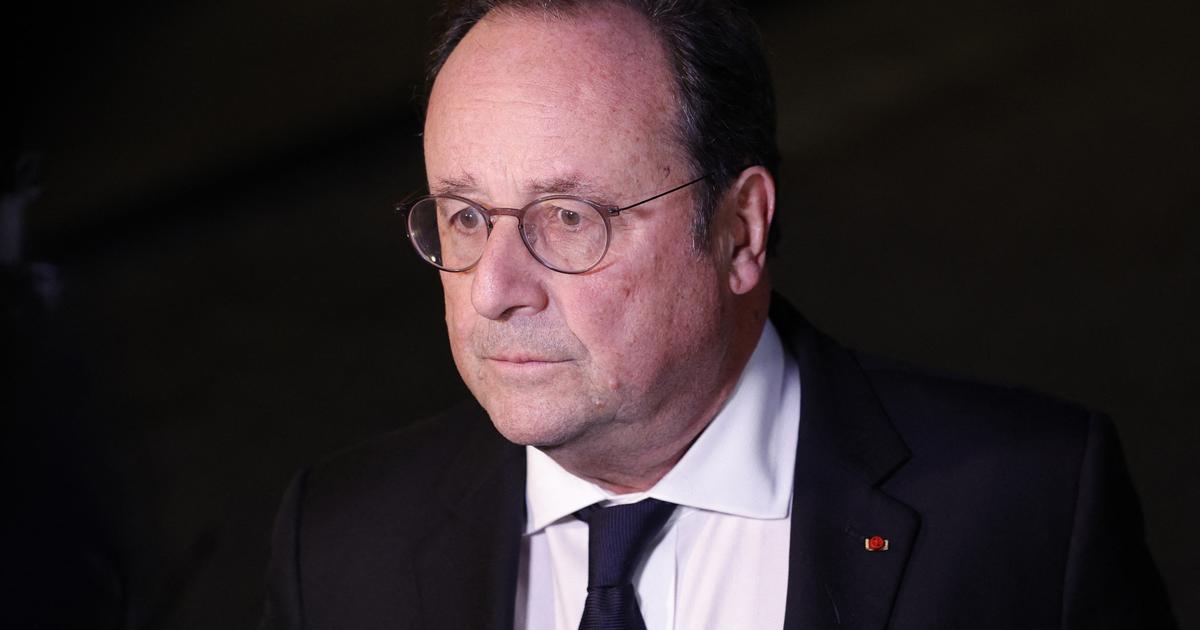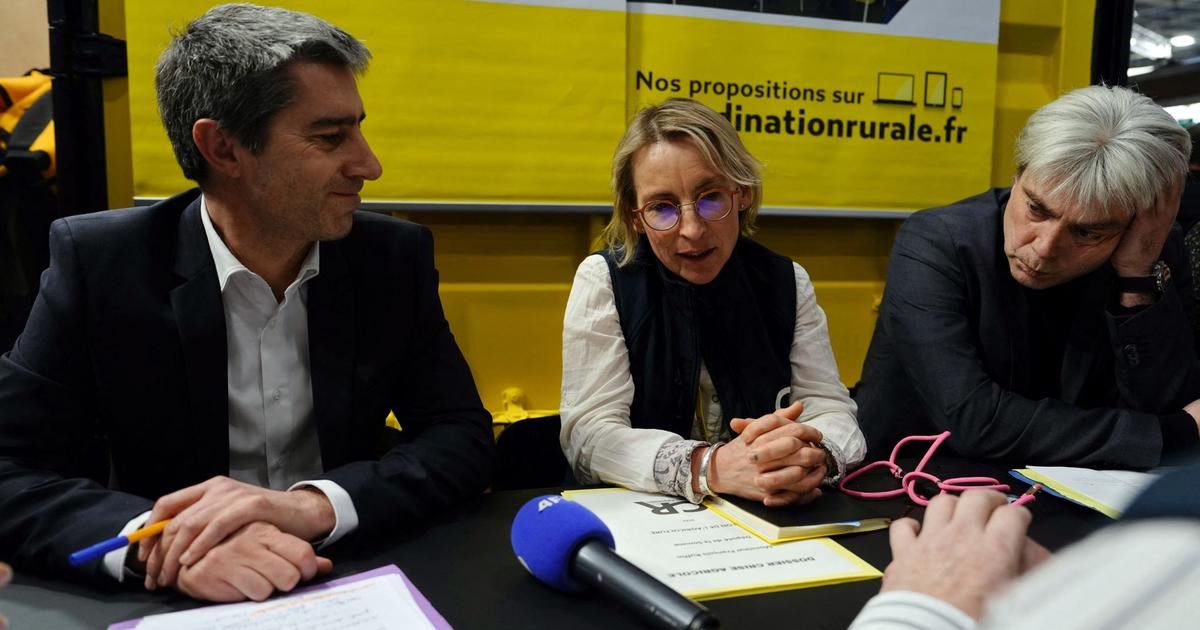François Kraus is director of the Policy and News Pole of Ifop. It publishes
an Ifop / LICRA / Le DDV study on the extent and limits of the “zemmourization” of minds
.
His Twitter account:
@ françois_kraus
.
FIGAROVOX. - You publish an Ifop / LICRA / Le DDV study on the extent and limits of the “zemmourisation” of minds. Can we say that with or without Eric Zemmour, the right, which you qualify as radical-populist, has won the battle of ideas?
François KRAUS. -
The influence of the theses of the "radical right" - or "national-populist" to use the terms used by political scientists - on the public debate cannot be reduced to its weight in the voting intentions even if these are already reaching a level. exceptional level: the “national-sovereignist” bloc embodied today by Zemmour, Le Pen, Dupont-Aignan and Philippot today captures around a third of the voting intentions according to the configurations in the first round of the presidential election. No one knows if the (non-) candidate Zemmour will stay at this level for a long time, or even if he will finally be able to stand. But his appearance in the campaign this fall had the merit of highlighting a structural phenomenon: the alignment of a large part of theelectorate on the "fundamentals" constituting the heart of the political offer of the radical right (eg insecurity, immigration, Islamism, communitarianism ...).
To measure the extent of this right-wing attitude, we should not therefore be satisfied with measuring the weight of “men” - whose voting intentions can fluctuate according to the campaign - but also the influence of their “ideas”. ".
However, what shows us a vast survey carried out by the IFOP for the LICRA and the DDV among 5,000 French people (including 4,500 voters), is that the security and identity themes hammered out for years by a Zemmour or a Le Pen collects a large echo in the population, sometimes including in the center and on the left of the political spectrum.
What are the “right-wing” themes that are the focus of consensus in French society?
The lack of a judicial response to delinquency is the subject of a quasi-consensus in the country, judging by the number of voters (82%) who share the idea according to which “French courts do not are not severe enough ”.
Likewise, the feeling of insecurity is much higher than that measured twelve years ago with regard to the proportion of voters sharing the observation that “we do not feel safe anywhere” (63%, + 13 points since 2010).
"
On security issues, for example, the demand for authority and public order does not emanate only from the ranks of the right
.
"
Ifop
And this feeling of general insecurity is not just a “whim” of voters from the radical (90%) or moderate (68%) right: it is also expressed by one in two centrist voters (e.g. 49% of voters). potential Macronist voters of 2022) and by nearly half (48%) of voters close to a leftist formation. Moreover, the fact that a significant fraction of the radical left also shares this observation (45% of voters being "very left", 48% of voters close to LFI, 41% of potential voters of Mélanchon in 2022) tends to consolidate the new communist position on the subject by showing that there is a real demand for security in the ranks of this left.
But it is undoubtedly on questions relating to immigration that the intellectual hegemony of the national right is most obvious ...
In view of the central place of the migration question in the discourse of the radical right, the degree of adhesion to certain ideas on the number of immigrants in France or on their role in insecurity indeed seems to us to be very symptomatic of this. which is now called - rightly or wrongly - the "zemmourization of spirits".
Today, the majority of voters questioned believe that "immigration is the main cause of insecurity".
Francois Kraus
Overall, the observation that “there are too many immigrants” is shared today by more than two thirds of voters (69%, + 10 points since 2010). And if this idea is massively shared by the voters of the different right-wing parties, it is also shared by two-thirds of Macronist voters (66%) and half of far-left voters (50% among voters close to rebellious France. , 58% among voters on the far left). On this theme, we can also observe that the theory of “great replacement” (Camus, 2014) has spread sufficiently so that today, half of voters (50%) have the impression of undergoing a process. substitution of the French by descent by a foreign population. And despite its radicality,this observation is shared by two-thirds of right-wing voters (66%), nearly half of Macronist voters (44%) and a large third of Melenchonist voters (37%).
"The observation that" there are too many immigrants "is now shared by more than two thirds of voters (69%, + 10 points since 2010)".
Ifop
Another subject less and less taboo while it is at the heart of the Zemourian discourse: the causal link between insecurity and immigration.
Today, the majority of voters questioned believe that "immigration is the main cause of insecurity" (62%) and they are almost as many (55%, +10 points since 2014) to adhere to the remarks which had won to Eric Zemmour a conviction by justice, remarks in which he justified the controls of young people of immigrant origin in the name of the fact "that most of the traffickers are black and Arab" (Canal +, 2010).
Finally, the expression of an ethnocentrist and identity discourse is no longer the prerogative of the voters of the radical right.
The rejection of Islam is thus expressed at a very high level, as we have seen with the number of voters who perceive "Islam as" a threat to the identity of France "(68%, + 5 points since 2013) or who share the Zemourian assertion that “the practice of Islam is not accountable with France” (44%).
And we find the same ethnocentric vision in the high number of people who wish that "France must remain a Christian country" (68%).
To read also François Kraus: "Eric Zemmour is not a media bubble"
Finally, the high rate of adhesion (57%) to Zemmour's statement according to which "we are above all a people of the white race, of the Christian religion and of the Greco-Roman culture" (CNews, Face à l'Info, June 26, 2020) can only worry an anti-racist association like the Licra, which has always fought against the banal invocation of the notion of "white race".
It is therefore clear that on the triptych formed by immigration, insecurity and Islam, the radical right seems to have won the battle of ideas at the bridge of worrying the anti-racist associations which regularly sue personalities like Zemmour.
You explain that
"
Zemmourism
"
is however in an electoral impasse.
Why ?
This may seem somewhat paradoxical insofar as the positions of Eric Zemmour on public order, religions or border control have a wide echo within a population which has placed the fight against delinquency, terrorism. and immigration in the front row of the determining issues of the vote in the presidential election.
"On the triptych formed by immigration, insecurity and Islam, the radical right seems to have won the battle of ideas" Ifop
But this "impasse" can be explained by the fact that his ideological victory is partly a sham.
First, because Zemmour does not have a monopoly on his subjects… The cultural hegemony acquired by the right on security and identity issues is the result of collective work which also owes the Le Pen and various figures of the classic straight.
In the case of an electoral competition as personalized as the presidential election, it is therefore far from being the only one able to embody a response to this demand for order and security.
The tension of identity and the demand for protection and authority expressed by the French do not, however, signify a desire for societal conservatism, ultra-radical reforms or economic liberalism.
Francois Kraus
Then because as a novice in politics, Zemmour suffers from a credibility deficit which will not be reduced as long as he does not break his political isolation - he has still not managed to rally leading political figures - and that he does not succeed in his transition from the status of “journalist” to that of “politician”. However, these trips to Drancy, Bataclan and Marseille only confirmed its difficulty in moving from polemicist to that of candidate. All these episodes - of which the middle finger in Marseille is only the ultimate illustration - could only have altered its presidentiality, in particular with a right-wing electorate who can see it as a form of lowering of the debate. public incompatible with the pretension or higher functions. In our investigation, it emerged fromother than his personality and presidential stature are the last reasons his constituents voted for him.
“The personality and presidential stature of E.
Zemmour are the last reasons why his voters voted for him ”.
Ifop
Finally, this impasse is due to the very content of its political offer which, in my opinion, is based on a deep error of analysis.
The tension of identity and the demand for protection and authority expressed by the French do not, however, signify a desire for societal conservatism, ultra-radical reforms or economic liberalism.
The latest wave of the
European Values Survey
(2018) had already highlighted this double tendency - apparently contradictory - towards societal liberalism on the one hand and a demand for security on the other. However, with its rearguard battles on issues of memory (Vichy, Gayssot law, etc.) or of society (homoparentality, feminism), it puts itself in a situation of "scarecrow" in the eyes of an intellectual environment. media which can only be hostile to it. With its positions on societal issues which are extremely in the minority, it appears to be completely at odds with a French society which, structurally, is more and more open to societal issues. Concretely, the electoral impasse of zemmourism lies in the fact thathe deprives himself of both the RN voters by his liberal economic program and the voters of the moderate right by his slippages and his ultraconservatism on questions of society. The political isolation, the amateurism of its teams and the ultra-divisive nature of some of its proposals (eg first names, etc.) do the rest.
With such a narrow political spectrum, his chances of qualifying in the second round are therefore held, and this all the more so if he ends up losing a conservative Catholic electorate scalded by his lack of manners and the echoes of the press people on his life private.









